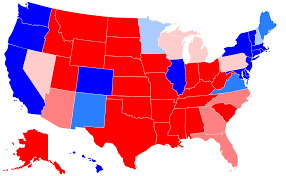Importance of the DA’s Victory
The recent victory of the Democratic Alliance (DA) in a key ward in Durban marks a pivotal turn in municipal politics, showcasing the party’s strength and influence in the region. This win not only reflects the local electorate’s trust in the DA but also suggests a broader trend towards potential shifts in the upcoming national elections.
Details of the Election
The by-election held in Ward 32 saw the DA securing a significant percentage of the vote, surpassing competitors from the African National Congress (ANC) and the newly formed Economic Freedom Fighters (EFF). Reports indicated that the DA received approximately 60% of the total votes cast, highlighting a strong support base among residents who are increasingly seeking alternative governance options.
Context of the Election
This by-election was triggered by the resignation of the former ANC councillor amid controversies surrounding local governance and service delivery issues. Voter turnout was reported at 45%, which is indicative of a heightened political engagement among the local population, particularly in light of ongoing dissatisfaction with traditional party politics.
Implications for Local Governance
The DA’s win is likely to influence local governance strategies and service delivery mechanisms in Durban. With a focus on effective management and accountability, the DA has promised to address pressing concerns such as infrastructure, crime, and unemployment. The party’s local leadership expressed commitment to ensuring transparent communication and community engagement moving forward.
Political Landscape and Future Predictions
The result of this election may signal a changing political landscape in Durban, potentially affecting the balance of power in the eThekwini Municipality and beyond. Analysts suggest that as the DA continues to gain traction in urban areas, it might threaten the ANC’s long-standing dominance, particularly in regions where governance failures have become more visible.
Conclusion
As the DA celebrates its victory in Durban Ward 32, the implications of this election extend beyond local boundaries, hinting at a shift in public sentiment that could resonate throughout the country. Political observers will be closely monitoring the DA’s actions in the ward as a potential blueprint for success in future elections. Voter engagement will be crucial as the electorate weighs its options ahead of the national polls.


